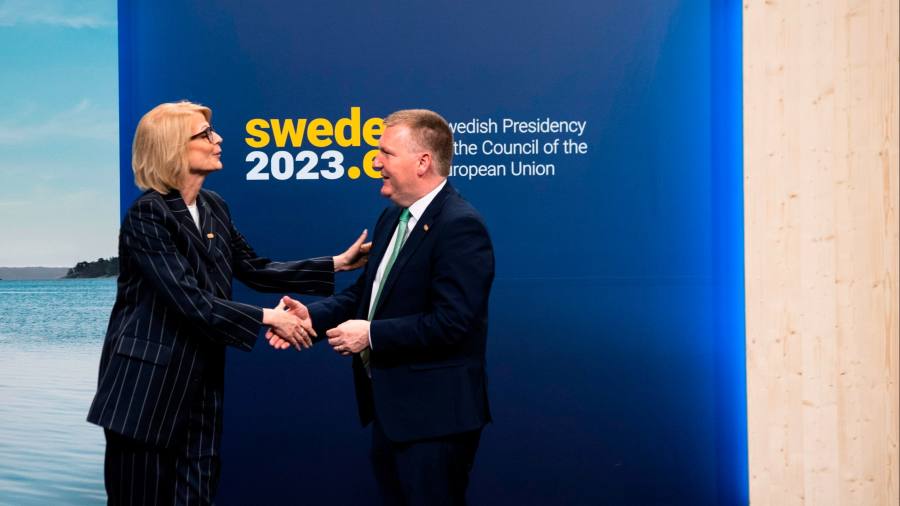Ireland plans to set up a sovereign wealth fund next year, modelled on successful ventures in other countries, to channel its bumper budget surpluses into tackling long-term cost pressures like pensions and infrastructure spending.
Finance minister Michael McGrath presented a “scoping paper” on a future fund to a cabinet meeting on Tuesday as government finances are awash in corporate tax receipts from US tech and pharma firms based in Ireland.
Ireland expects to net €65bn in budget surpluses between now and 2025 and is seeking to future-proof its finances in case its corporate tax bonanza runs out just as it faces spiralling pensions costs.
The paper had examined similar plans in Norway, Japan and Australia and set out criteria for the fund, which is to be managed by the National Treasury Management Agency, the finance ministry said.
The fund would be intended to be drawn down over time as age-related and other structural expenditure pressures grew, officials said. It was not yet clear whether the NTMA would contract an asset management fund, or exactly what assets the new sovereign wealth fund would invest in.
The government has long warned that it cannot rely on huge, but volatile, corporate tax receipts — more than half of which come from just 10 US corporations — for day-to-day spending.
The Irish government is forecasting a general government surplus for this year of €10bn, rising to €16.2bn next year, compared with €8bn in 2022. Corporation tax is expected to raise €24.3bn this year, up 7 per cent on 2023.
But the government estimates that half of this year’s projected corporate tax revenues could be potential one-offs. By 2030, it expects to have to find €7bn to €8bn more a year for pensions than at the start of the decade.
It has already begun stashing some of its windfall tax profits away for a rainy day and has a €6bn National Reserve Fund, invested in low-risk government bonds. Unlike that fund, the new vehicle will pursue a diversified investment strategy, the government said.
Ireland is torn between the government’s desire to manage what Dermot O’Leary, chief economist at stockbroker Goodbody, calls an “embarrassment of riches” in a prudent fashion, and calls to plough the surplus cash into tackling a chronic housing crisis that even the central bank has warned is a potential constraint on the economy.
Bumper receipts from tech titans such as Google and Meta that have large operations or European headquarters in Ireland have so skewed national economic data that the country uses a modified measure of economic output, dubbed GNI* to try to paint a more accurate picture.
Even so, the government expects a budget surplus of 3.4 per cent of gross national income this year, swelling to 5.4 per cent next year. “These are the largest in the euro area. The government has important choices to make,” O’Leary said.
Given Ireland’s history of procyclical spending in past decades, “it would be right in an economy that’s at full capacity to put some of those funds aside”, he said.
However, Ireland faced a general election by early 2025 and the government would “find it difficult to resist the urge to use some of this surplus for electoral gain”, he added.
Read the full article here




